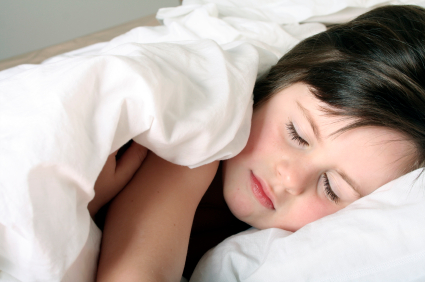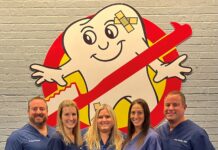
The ongoing COVID-19 pandemic has caused us to rethink, rework and reprioritize the way we go about our lives, raising questions such as “which outings are necessary?” and “how do I keep my child healthy when outside the house?” While children 5 years and older are now eligible to receive COVID-19 vaccines, emerging variants have kept the health care landscape confusing for many, especially for parents of children unable to receive vaccines at this time.
According to the Centers for Disease Control and Prevention, childhood tooth decay is the most common chronic childhood disease. By age 8, over half of children have had a cavity in their baby teeth. The CDC
also reports an average of 34 million school hours are lost each year due to emergency dental services.
While your child’s routine dentist appointments may look different at the moment, it’s important to continue to keep up with oral health to ensure children are well-equipped to tackle the formative years in their lives.
We contacted Philadelphia-area pediatric dentists for their advice on bringing children in for routine dental hygiene appointments during the COVID-19 pandemic.
Importance of oral health care
“Oral health care is essential medical care because the mouth is the gateway to the rest of the body,” explains Dr. Anthony Monteiro, who treats patients in the Wilmington, Delaware, offices of Children’s Dental Health. “If cavities or tooth decay goes untreated, it can lead to serious infections.”
Dr. Maria Cordero-Ricardo of Philadelphia Pediatric Dentistry adds that the exam given at routine dental appointments is extremely beneficial to raising healthy kids. “It’s the opportunity to update and come in contact with (a family’s) trusted dental home and let them see what your situation is at that time.” She notes that the interviews she gives during exams allow her team to catch issues early, providing time to recommend creative solutions and avoid larger dental health issues down the line.
Routine appointments are necessary for maintaining oral health, which Monteiro and Cordero-Ricardo point out as important amid the ongoing pandemic that has stressed the emergency health care system.
Safety at the dentist’s office
“I think dental offices are extremely safe for families,” Cordero-Ricardo emphasizes. She notes that dental offices were already taking universal precautions, functioning as very clean, sterile environments.
Dental offices have handled challenges posed by the pandemic in different ways, she explains. “You’re going to see air filters in some spaces. You are going to see a practice of spacing out appointments in other spaces, and what I thought was really interesting is that we became very creative with doing procedures that didn’t need as much aerosol.”
She also applauds families for their new commitment to rescheduling appointments when children are sick and adds that prescreeners, brief waiting room times, the removal of nondisposable waiting room items, and a new emphasis on PPE and changing more PPE between patients are additional precautions families will find when at her office.
Monteiro also notes that dental offices have always had high standards for cleanliness. “Those standards have only gotten higher in our offices.” Since the beginning of the COVID-19 pandemic, “our doctors have worn additional PPE, such as a K95 face mask, surgical mask, face shield and disposable surgical gowns. We’ve also placed air filtration units in our offices,” he adds. Visitors to his offices will not see high-touch items in waiting rooms at this time, and families are encouraged to wait in their cars or outside before their appointments begin.
Additional resources and advice for parents
“I think what COVID-19 taught us was this is what happens when our system gets disrupted,” remarks Cordero-Ricardo, who saw a huge uptick in decay among patients returning to her office following a major change to their old school routines, which often involved snacking while on Zoom.
Cordero-Ricardo emphasizes that the most important habit to instill in children is “getting a great bedtime routine of brushing with a fluoride toothpaste.” In addition, parents should encourage a child to drink water throughout the day — one plus the child’s age in cups — in lieu of fruit juices or sodas. Finally, Cordero-Ricardo notes the importance of focusing on nutrition in the form of “seated meals.”
Grazing on the go can lead to mindless consumption, which can, in turn, lead to cavities.
Monteiro adds that those looking for additional oral health information can visit childrensdentalhealth.com for a blog with resources for kids, parents and educators.
“I am a parent,” concludes Cordero-Ricardo. “We have gone through this tremendously challenging year … and what I think is important is to take in the fact that we have to adapt and keep adapting …. Finding a dental home that you can trust through this, keeping that regular care, allowing your kids to, you know, learn to love the dentist in this new world is going to be the best way to handle what we can’t control.”






